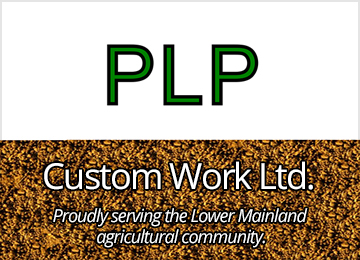Ronda Payne
If the change goes forward, what will it mean to growers?
December marked the announcement of pending changes to Chicken Farmers of Canada allocations. Expected to be rolled out in the fall of 2014, these new changes will see specialty birds – the Asian birds of Taiwanese and Silkie – fall under a separate allocation from the primary mainstream and organic allocation.
BC gets about 15 per cent of the national allocation which is significant given that chicken is the number one meat choice in Canada.
According to Bill Vanderspek, General Manager of the British Columbia Chicken Marketing Board (BCCMB), this move was encouraged by the BC board to accommodate the growing markets for both specialty and organic meat birds.
“That market [specialty birds] has grown faster than the mainstream market,” Vanderspek said in a recent interview.
Because of this increase in specialty growth, the BCCMB is considering changing the existing BC allocation and quota system (in place since 2005) to align with the new pending Canadian allocation system. But, Vanderspek wants growers to know that no decisions have been made at this time. The BC changes are still under discussion.
“We have a unique marketplace here in BC,” he said. “Since about 2005, we have regulated the production of specialty chicken. Specialty has been about three per cent of quota.”
As present, BCCMB’s definition of specialty chicken includes Silkies, Taiwanese and organic birds. The proposed BC changes would remove organic birds from the specialty quotas and roll them into mainstream, leaving only the Asian birds in the specialty quotas. Ontario is expected to follow a similar alignment with the possibility of other Canadian regions following in the future.
Vanderspek noted that BC and Ontario have the largest volume of Asian and organic bird production in the country.
Growth of the organic market is the driving factor in the proposed BC change as the current system sees the organic birds in the specialty allocation “cannibalizing” the mainstream allocation. This is due to consumer choice of either a mainstream bird or an organic bird, while Asian birds fit a completely different market need and some of the B.C. grown specialty birds are exported to other countries.
“Certified organic has been growing very, very rapidly,” Vanderspek said. “One and a half per cent [of chicken grown] is certified organic. Three years ago it was one quarter of one percent.”
As outlined by Vanderspek, the proposed change to the BCCMB quota system is to allow for increased growth in the organic market.
“Organic chicken really displaces conventional chicken,” he noted.
In order to gauge interest and acceptance of the proposed changes to the BC quota system, BCCMB sent a survey to the province’s 335 growers.
“The vast majority of response was in agreement to putting organic back into mainstream,” Vanderspek said. “The timing is right.”
Organic growers are involved in the discussion process with all four certified organic growers taking on an active role.
“We have had, and will have, a full consultation process with lots of opportunities for [all] growers [to get involved],” he commented.
A decision on the BC quota change will be made within the next couple of months but if the change is to proceed, growers will be given a significant amount of time to make any necessary transitions.
“They will have at least a couple of years,” noted Vanderspek.
If the change goes forward, what will it mean to growers? Those currently under a specialty designated quota would have the opportunity to remain as specialty (if growing Asian birds) or move to the mainstream quota (if growing organic birds). Organic growers may also choose to stay under the specialty category and convert their operation from organic to the Taiwanese and Silkie production. Quota amounts will stay the same regardless of whether growers stay under specialty or move to mainstream. As Vanderspek described it, it would be a process of moving their quota “from one column to another.”
While changes to the designations of allocations and quotas can create significant issues, BCCMB is prepared to make any transitions easier for BC chicken growers.












